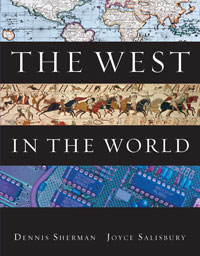1 A) the Liberal Party. B) the Conservative Party. C) the Socialist Party. D) the Whigs. 2 A) as the Parisian lower classes took over positions of authority when the rich fled the city under German attack. B) when French socialists took over the Parisian government. C) under Karl Marx's leadership. D) and had parallel organizations throughout the French countryside. 3 A) he was a liberal. B) he believed the masses would back his conservative policies. C) he wanted to bring about revolutionary changes in government. D) William II forced his hand. 4 A) Socialists. B) Catholics. C) liberals. D) conservatives. 5 A) led a movement in the countryside to educate peasants. B) attempted to assassinate the police chief of St. Petersburg. C) murdered him with a bomb. D) sponsored a letter-writing campaign to protest. 6 A) Second International. B) Labour Party. C) Liberal Party. D) United Socialist Party. 7 A) workers. B) unions. C) national governments. D) capitalists. 8 A) monarchists. B) nationalists. C) conservatives. D) socialists and republicans. 9 A) Frances Power Cobbe. B) Emmeline Pankhurst. C) Jane Austin. D) Elizabeth Cady Stanton. 10 A) 1840s B) 1850s C) 1860s D) 1870s 11 A) desire for new markets and investment opportunities B) nationalism C) a longing to expand European cultural horizons D) the "white man's burden" 12 A) Europeans were defeated by African troops for the first time. B) British machine guns cut down 11,000 Muslim tribes' men, while only 28 British soldiers died. C) British soldiers were overcome by malaria. D) Italian troops met a devastating defeat. 13 A) quinine. B) opium. C) chloroform. D) penicillin. 14 A) of its wheat industry. B) they wanted to import inexpensive tea. C) the Suez Canal was vital for securing their link to India. D) cheap rice production offered lucrative opportunities. 15 A) independence was granted to some nationalities formerly part of the Ottoman Empire. B) France acquiesced to British control over the Suez Canal. C) the ground rules for European territorial acquisition in Africa were set. D) King Leopold II of Belgium made his country's claims on the Congo. 16 A) got modern arms from the European powers by playing them off of each other. B) lost control of his government to a British trading company. C) lost to Italian forces in 1896. D) allied with the French against the British. 17 A) the British government B) the French government C) the British East India Company D) Napoleon's brother Constantine II 18 A) China. B) Indochina. C) India. D) the Philippine Islands. 19 A) was paid an indemnity by Britain. B) could prosecute British citizens under Chinese law. C) created a joint venture with a British firm to construct railroads into China's heartland. D) ceded Hong Kong to Britain. 20 A) Russia. B) China. C) Great Britain. D) the United States. 21 A) labor unions B) anti-Semites C) women D) socialists 22 A) by a graduated income tax, which was heaviest on the rich B) by sales taxes, which fell most heavily on the poor C) by taxes on the employers D) by taxes on the British colonies





